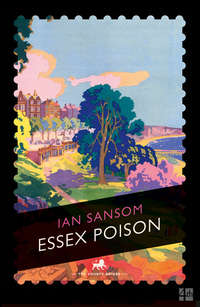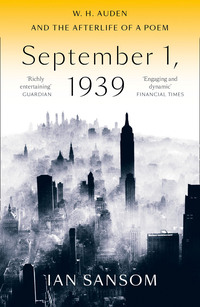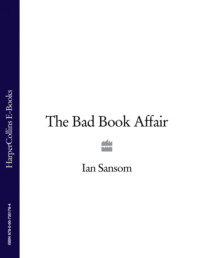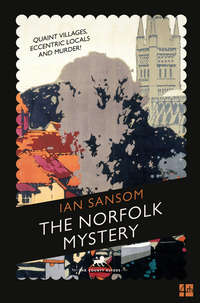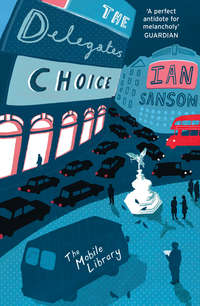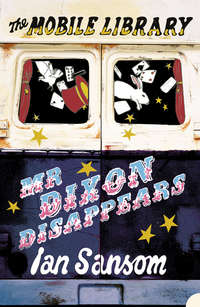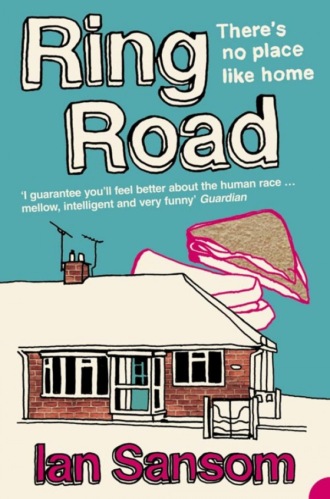
Полная версия
Ring Road: There’s no place like home
I remember seeing him the day he’d just bought his first set of knives and the look on his face, when he unwrapped them in the pub, to let us all admire: it was the look of a man who knew where he was going in life. It was the look of a man with a sharp knife in his hand and the future before him like a lamb to the slaughter. Bob’s knives were not like the knives our mothers had at home. Bob’s were German knives, made from high-carbon steel, with three beautiful silver rivets in the handles, not like they were ordinary rivets just holding the thing together, but like they were meant to be there, like they had been ordained, three perfect eternal rings, and Bob sat with us in the Castle Arms on the red velour, with these six-and ten-inch blades, and he rolled up his sleeves and he raised his hands, like the priest with the host, and he balanced the knives on his middle finger, one by one, and they perched there, like beautiful shiny birds come down to rest. They’d cost him his first month’s wages and then some, but he was as proud as you would be if you’d just met the woman of your dreams, and he handled those blades with exactly the same kind of care and attention, gazing at them fondly, and perhaps a little shyly, imagining their future life together. Bob told us you could get all sorts of different knives, knives of every size and for every purpose. He said there was even a knife called a tomato knife, for cutting tomatoes, and of course none of us had ever even heard of such a thing as a tomato knife, and we laughed at him and joked about all the other knives he should get: how about an egg knife, we said, where’s your cucumber knife, Bob, and your lettuce knife, and your knife for the cutting of toasted ham and cheese sandwiches, huh, and he rolled up his knives, in this brand-new beautiful thick green roll of material, and tied them up with their new strings, and we never saw them again, and that night we went back to our parents’ houses with their plastic-handled cutlery and tried to balance bread knives on our fingers.
We were silly to scoff. These days Bob has his own catering company, Old-Fashioned Foods (Cooked the Traditional Way), and a subsidiary called Sandwich Classics. He has a fleet of vans he runs out of the industrial estate, up by the new fire station, and the motto on the side of the sandwich vans says it all. The signs read ’SANDWICH CLASSICS AND SNACK FOODS FOR THE DISCERNING PALET’.* The sandwiches are Bob’s big earner. They go the whole of the length and breadth of the county. He’s talking about setting up a franchise.
Bob also has a stake, a small but significant financial interest, in the big new Irish-themed restaurant out on the ring road – the Plough and the Stars they call it – which offers delicacies such as Turkey O’Toole, and Flannigan’s Fish Sandwich, and Banbridge Cajun Chicken Tagliatelle, ‘chunks of tender local chicken dusted with cajun spices and served on a bed of tagliatelle, covered in a creamy white wine sauce (vegetarian option available)’. It’s good. Or at least it’s profitable. People flock to it in their cars, on their way to or from Bloom’s, the shopping mall, and the DIY superstores and the big new private gym, the Works, which is right next door. The central feature in the Plough and the Stars – which was advertised on opening in a full-colour two-page centre spread in the Impartial Recorder as, ’AN ARCHITECT-DESIGNED WAREHOUSE-STYLE EATING EXPERIENCE’ – is a fibreglass whitewashed cottage with three-foot-high animatronic leprechauns who enter and exit on the quarter-, the half-hour and the hour, singing ‘Danny Boy’, ‘Galway City’ and ‘The Bard of Armagh’. The words of the songs are on the back of the laminated menus and most customers are happy to join in, as long as their mouths aren’t full of ‘The Kerryman’s Garlic Bread (made with fresh Kerry butter)’, or ‘Belfast City Trifle’ and sometimes even when they are.
Bob lives outside town, far from the Plough and the Stars, beyond the ring road, in a house set in its own landscaped grounds, now minus two trees, with outbuildings, and its own jacuzzi, and a games room with a pool table, and table tennis, a minibar, genuine antique furniture and original art on the walls, and a hallway so vast that in the winter he lights a big fire and has carol singers, a twelve-foot Christmas tree, and he invites us all round with our children to play party games, and he sits on this antique chair he calls a gossip-seat – and who are we to argue? – dressed up like Santa, handing out presents, like the proverbial lord of the manor.
Bob has definitely made it.
But Bob is not a satisfied man. Of course, the secret of Bob, the glory of Bob, is that he’s not a satisfied man: if he were a satisfied man he’d be just like the rest of us, living in a semi off the ring road, treeless and jacuzziless, and those with a ‘discerning palet’ would be cheated of sandwich classics and old-fashioned foods (cooked the traditional way). Bob works seven days a week, fifteen, sixteen hours a day, talks endlessly on his mobile phone and he hasn’t taken a holiday in years, not since he paid for a group of us to go on holiday with him to a resort in Spain, which was not a success, which was a disaster, in fact – he paid our fares and our accommodation, but he made it clear that we would have to pay for our own food and drink and entertainment, and I think, to be honest, some of us felt cheated, as if Bob should have gone the whole hog and paid for everything, as if he owed us something, and those of us who didn’t feel that probably felt that we owed him something, so in the end everyone was dissatisfied. Generosity can be hard to bear and a generous friend can be a burden. Harry made a joke one night when we were in a club in Marbella that the whole thing was probably tax deductible anyway, so it didn’t really count, and Bob left the club, caught a cab straight to the airport and we didn’t see him for months afterwards.
Not that Bob is lonely, or that he needs our company. He’s had relationships with many women over the years – many many women – and he’d like a family of his own, he says. He’d like a big family – a dozen children he reckons he could cope with – but he’s not yet found the right woman. He’s getting older, of course, like the rest of us, but the women seem to have stayed around about the same age – early twenties, which is undoubtedly a good age, nothing wrong with it at all, and none of us would wish to deny Bob or his female friends their various pleasures, but you can’t help but think that even the young can get stuck in a rut. In fact, the young may even be a rut. At the moment Bob is kind of stuck on waitresses – from the Plough and the Stars mostly. As well as his investment in the business, Bob is employed by the restaurant as something called a Menu Consultant, which seems to mean nothing except that he gets to hang out in the kitchens occasionally, and to meet the waitresses and drive them home – he drives a Porsche at weekends and a BMW during the week – and for the first few weeks everything goes fine, but after a while the young ladies always want to talk, and Bob never has much to say. Bob is a doer rather than a talker or a thinker and at the end of a day he just wants peace and quiet, and a little bit of rest and relaxation. He does not want to sit and talk about the state of the world or the state of play between man and woman. He is not a man who enjoys contemplating his own navel: he would rather be contemplating someone else’s. So pretty soon he finds himself driving someone else home from the restaurant and the waitresses find themselves waiting tables elsewhere. As a consequence, the Plough and the Stars enjoys a rather high staff turnover, and the loyal front-of-house manager, Alison, says one day they’re going to run out of young women in the town to employ and they’ll have to start importing them. Bob thinks that this would not be such a bad idea.
Now Bob is, of course, a rich man, a millionaire, although, as he points out, being a millionaire these days is nothing special. Virtually everyone is a millionaire these days, according to Bob, or they could be. Bob reckons he needs at least another £2 million to be really comfortable. He’s got it all worked out. With an extra £2 million, maybe a little more, he could afford to live the rest of his life on about £120,000 per annum. Which would be quite sufficient, as long as you’ve cleared all your major debts. And Bob has cleared nearly all his debts. Except for one.
His mother.
Bob is an only child and his dad, Sammy, Sam Savory, a wiry man with a thick head of hair and as thin as a whippet and as strong as an Irish wolfhound, died a few years ago. He was a sheet-metal worker. He worked hard all his life and then he got cancer and was dead within six months of retiring. Mesothelioma – a cancer caused only by exposure to asbestos. It was not a good death. It was an industrial death. Bob paid, of course, for private nursing, but it couldn’t save Sam, and Bob’s mum Maureen was ashamed: she felt her husband should somehow have known he was working with asbestos and should have been aware of the dangers, even before anyone knew there were dangers. She blamed him and so did Bob. They felt that it reflected badly on the family. It’s difficult sometimes to feel sympathy for the dead and the dying. Sometimes, when someone dies, even someone close to you – especially someone close to you – you just think, how dare you? And in Bob’s case, and for his mum, there was also the corollary: how dare you and how dare you die of such a stupid man-made disease, something which was so easily avoidable? If only you’d worn gloves and a mask and some protective clothing you would have been OK. None of this would have happened. None of us would have had to be so upset. It was your own fault. They didn’t even claim for compensation.*
And now Bob’s mother Maureen has Alzheimer’s. Bob can’t believe it. Sometimes he’ll shout and rage at her, when no one else is there: he can’t believe she’s really ill. A part of him thinks she’s putting it on. Silly woman, he calls her. Silly bitch. Stupid cow. Challenging her. Words he remembers saying to her only once before, when he was a child, after they’d had some argument or other and his mother had said to him, ‘You’re not too old for me to give you a good hiding, you know,’ and he smirked at her and so she did, she smacked him, right across the backside, and he felt the full force of her wedding ring and he never said the words again. Until now. When Maureen deteriorated one of the nurses recommended a book to Bob, to help him cope, but Bob doesn’t read books. He does not admire book learning: what Bob admires is expertise. So he buys in twenty-four-hour care. It’s the least he can do.
At night when he gets home from work, he lets the nurse take a few hours to herself, and he sits down with his mother in front of the wide-screen TV, in his TV room. He’s had the place fitted out with a DVD player and a complete home cinema system – which he’d had to order specially from America. He’d gone to considerable trouble, had got in Harry Lamb the Odd Job Man to help him fix the screen to the joists in the ceiling – but he didn’t enjoy watching the home cinema with his mother. It didn’t feel natural. He only watched it now with the waitresses. With his mum he preferred to watch TV, like they used to when Bob was a child. They watch anything, Bob and his mum. Films. Football. News. Documentaries. It doesn’t matter. It’s all the same. It’s not the content. It’s the act of watching that counts. It is a huge comfort to them both.
Before they go to bed at night, during the adverts, Bob always makes them something to eat. He tends to get hungry around about ten, the same every night, before the news, but it always seems to surprise him, his own hunger. He never seems prepared for it. Sometimes he roams around the kitchen in the semi-darkness, opening cupboards, ransacking for food. Bob is a rich man, but he can find no food in his own house which he would want to eat. What he could really manage would be one of his mum’s roast dinners. He could eat a tray of those roast potatoes. A whole tray. They were always so good. The beef dripping – that was the secret. He knows how to do it, of course – you have to get the beef dripping nice and hot in â saucepan, and then you bash the parboiled potatoes around in there for a bit, and season them with salt and pepper, and then slide them on the tray into the oven, and one hour later, perfect roast potatoes. But he could never be bothered to do it himself. It just wouldn’t be the same.
The rare roast beef, though. He could definitely eat some of his mum’s rare roast beef. And maybe some carrots. And a nice gravy.*
He goes from cupboard to cupboard – chocolates, biscuits, crisps, nuts, crackers. None of it is any good. It’s all manufactured. It’s all rubbish. He knows it’s rubbish. Sometimes the rubbish in his cupboards makes him so angry that he throws it all away, just chucks it in the bin. And then he buys more. He buys more rubbish. This is what happens when you’re a rich man in our town. You don’t necessarily buy better. You just buy more. Because there isn’t anything else to buy. You want something more fancy, you have to leave: you have to go to London, or somewhere else where they do funny spaghetti and truffle oils, and novelty cheeses.
Bob’s mother used to make lasagne. And she used to make a salmon soufflé, on special occasions, using a whole tin of salmon – that was good too. And sausage rolls. Macaroni cheese. Pies and pastries. And cakes. The smell of baking. The smell of fresh bread. The food then seemed so different. It was all so good. Bob’s favourite meal, of all the meals his mother used to make … after all these years, he still has no doubt what was his favourite, and every night, between the adverts, he ends up trying to re-create it.
When he used to come home from school he would be just so tired sometimes, and he’d be so hungry, before his dad got home from the works, and so he and his mum would sit down together, his mum drinking her coffee with two sugars and smoking, and him eating the sandwich that she’d made him: white bread and margarine and Cheddar cheese, or sometimes a slice of ham, if they had it in the house, which was not often.
‘How was school?’ she’d ask.
‘Fine,’ he’d say. ‘I don’t want to talk about it.’
‘OK,’ she’d say and that would be fine. They didn’t have to talk: they were mother and son.
They would just sit there, the two of them, looking out of the window, eating cheese sandwiches and waiting for his dad to come home.
So when Frank Gilbey rolled up at Bob’s late one night, just before Christmas, Bob ushered him in, asked him to sit down in the big kitchen equipped with every piece of gadgetry imaginable, and about half a mile of granite work surface and a foundry’s worth of stainless steel, put the kettle on and put a simple cheese sandwich down in front of him.
‘So?’ said Bob.
‘There’s a problem,’ said Frank.
* He also has his own website now, and a cookbook, Speedy Bap!, which includes chapters on ‘Home-Made Burgers that Don’t Fall Apart’, ‘What Next with Tuna?’ and an appendix, ‘Mayo or Pickle?’, in which Bob comes down firmly on the side of chutney. The book is available locally from all good bookshops, or newsagents, price £9.99. It’s been a runaway success county-wide. Bob is in demand all over the place for signings and sandwich-making demonstrations. A new updated edition of the book, Speedy Bap!!, which is guaranteed a lot of local press coverage and includes all-new chapters on low-fat cottage cheese and wafer-thin ham, is due out soon, with additional recipes gathered from Bob’s visits to various Women’s Institutes, Soroptomists, the Waterstones up in the city, and other local groups and associations.
* Bob’s old friend Terry Wilkinson, ‘Wilkie the Gut’ to many of us here in town – a man who has enjoyed perhaps a touch too much old-fashioned food (cooked the traditional way) in his time – runs a nice little business, The Gist, up on the industrial estate, specialising in vehicle graphics, and he took care of all the graphics on the vans for Bob. Terry left school with no qualifications and few prospects but he now lives in a five-bedroom house with Jacuzzi in the Woodsides development, and frankly a few slips in spelling and the odd wandering apostrophe are hardly going to worry him: as far as Terry is concerned a palette is a palet is a palate; just as long as you get – as Terry himself might say – the gist.
* Unlike a lot of people here in town. Martin Phillips, the solicitor on Sunnyside Terrace, has dealt with more than his fair share of vibration white finger, and asbestos exposure, and occupational asthma, and allergic rhinitis over the past few years – dealing with wheezy old and middle-aged men who spent their lives working on the roads, or on the sites, or on the railways, or out in the fields, or in the factories and the steelworks up in the city, which covers just about everyone here, actually, and all of whom are now seeking recompense for lives diminished and cut short, recompense which usually covers about two weeks in Florida with the grandchildren, a new sunlounger for the patio and a slightly better coffin. For further details and information on claiming for industrial diseases contact your local Citizens Advice Bureau or ring Industrial Diseases Compensation Ltd on 0800 454532.
* Bob’s ‘Sunday Roastie Wedgie’ – cold roast beef, horseradish, English mustard and roasted vegetables in a granary bap – includes just about everything but the gravy (see Speedy Bap!, p.44). He did try experimenting with a cold gravy mayonnaise at one time but the combination of beef stock and whisked eggs was too cloying on the palate. It’s a simple lesson, but one worth repeating: gravy is best served hot.
Конец ознакомительного фрагмента.
Текст предоставлен ООО «ЛитРес».
Прочитайте эту книгу целиком, купив полную легальную версию на ЛитРес.
Безопасно оплатить книгу можно банковской картой Visa, MasterCard, Maestro, со счета мобильного телефона, с платежного терминала, в салоне МТС или Связной, через PayPal, WebMoney, Яндекс.Деньги, QIWI Кошелек, бонусными картами или другим удобным Вам способом.


